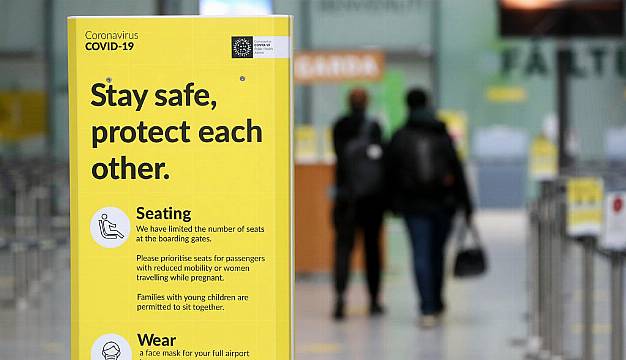The State was entitled to refuse two Malaysian students permission to land in Ireland to study online courses here, the Court of Appeal has ruled.
Chain Wen Wei and Tang Ting Ting arrived at Cork Airport in December 2020, during a “Level 3” lockdown, to take up an English language course that moved online due to public health restrictions.
At the time Covid-19 was affecting the State’s 2011 policy forbidding students from non-European Economic Area (EEA) countries to enter the State for an online English language course.
An exemption allowed certain non-EEA students to remain in Ireland for courses that were moved online due to the pandemic, but this did not extend to people seeking to enter to pursue online studies. The Department of Justice said prospective students seeking to enter the State should wait until in-person tuition resumed.
Ms Ting and Ms Wei were refused leave to land under a subsection of the 2004 Immigration Act that states a non-national’s presence “could pose a threat to national security or be contrary to public policy”.
In their judicial review cases challenging the entry refusals, the students argued, among other things, it was not clear if the decisions were based on national security or public policy grounds.
In a recent judgment for the three-judge court, Ms Justice Mary Faherty said the High Court was correct to dismiss the actions.
Ms Justice Tara Burns was also right to find the term “public policy” in the 2004 Act refers to Government policy on the regulation of entry into the State and could be considered separately from “national security”.
The ruling brings clarity to the meaning of “public policy” in the Act which was earlier defined in conflicting terms by two High Court judges.
Ms Justice Burns and the appeal court favoured Mr Justice Richard Humphreys’s definition in a 2015 ruling. In so doing they departed from a 2011 judgment of Mr Justice Gerard Hogan (now a Supreme Court judge) which considered the term does not simply mean contrary to Government policy but implies the personal conduct of an immigrant “poses a real and immediate threat to fundamental policy interests of the State”.
Appealing, Ms Wei and Ms Ting claimed the term in the subsection must be seen as connected to national security, as per Mr Justice Hogan’s analysis.
In such circumstances, they alleged, the Minister for Justice and the Commissioner of An Garda Síochána cannot apply any public policy and must have regard to an immigrant’s personal conduct.
The respondents did not identify any personal conduct of Ms Wei or Ms Ting that posed a real and immediate threat to a fundamental interest of the State, they submitted.
The appeal court did not interpret that the inclusion of the two concepts in the same subsection as intending to conflate them or to cut down the meaning of “public policy” in the way suggested by the women.
It was not necessary for the Minister to consider Ms Wei or Ms Ting’s personal conduct, Ms Justice Faherty said.

She said the Minister adopted a “perfectly rational” policy of not permitting a student to enter the State for an online course.
The Oireachtas must have intended that the Minister could refuse entry for legitimate policy reasons, otherwise he “would not be in a position to regulate entry to the State” and give effect to the 2004 Act’s purpose, she said.
The judge noted the students had, in fact, completed the English language course and were enrolled for a second year.
Fellow appeal court judges Ms Justice Úna Ní Raifeartaigh and Mr Justice Donald Binchy agreed with the decision to dismiss the appeals.







